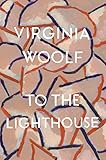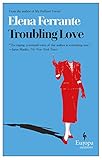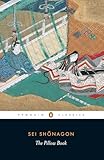
“Literature has more dogs than babies,” Rivka Galchen writes in Little Labors, “and also more abortions.”


 Put like that, the observation is startling. And though the babies are definitely out there — Galchen finds them in Beloved, The Millstone, A Personal Matter, The Fifth Child, and Dept. of Speculation for starters — the search seems to leave her (playfully) grasping at straws. Perhaps Frankenstein’s monster is her favorite fictional baby, Galchen cheekily suggests. Perhaps Rumpelstiltskin is the metaphoric firstborn of the fairy tale, and his hijinks are merely sad attempts to gain his surrogate mother’s attention.
Put like that, the observation is startling. And though the babies are definitely out there — Galchen finds them in Beloved, The Millstone, A Personal Matter, The Fifth Child, and Dept. of Speculation for starters — the search seems to leave her (playfully) grasping at straws. Perhaps Frankenstein’s monster is her favorite fictional baby, Galchen cheekily suggests. Perhaps Rumpelstiltskin is the metaphoric firstborn of the fairy tale, and his hijinks are merely sad attempts to gain his surrogate mother’s attention.

 From my own bookshelf I’ll add to the list Rachel Cusk’s A Life’s Work, a vicious and spry chronicle of her daughter’s first year. Ernest Hemingway’s “Indian Camp” features a baby of sorts. (Though one centimeter over is “Hills like White Elephants,” in which there will soon be an abortion.) Trials of parenting, once a child has achieved a certain age, give us highs of tenderness and brushstrokes of true cruelty. See Mrs. Ramsey winding her shawl around a fright-giving pig skull in To the Lighthouse; or Jason’s attempts to corral his mutinous niece in The Sound and the Fury.
From my own bookshelf I’ll add to the list Rachel Cusk’s A Life’s Work, a vicious and spry chronicle of her daughter’s first year. Ernest Hemingway’s “Indian Camp” features a baby of sorts. (Though one centimeter over is “Hills like White Elephants,” in which there will soon be an abortion.) Trials of parenting, once a child has achieved a certain age, give us highs of tenderness and brushstrokes of true cruelty. See Mrs. Ramsey winding her shawl around a fright-giving pig skull in To the Lighthouse; or Jason’s attempts to corral his mutinous niece in The Sound and the Fury.
And yet between courtship and marriage, or between the searchings of early adulthood and the intrigues of family life, literature seems to draw a two-year blank. A survey of 1,000 novels might produce nuanced portraits of extramarital affairs, or descriptions of all-night benders, but scant answer to the questions: Where do people come from? Under what circumstances are we born?
Why the omission?
Galchen isn’t sure. Thankfully not. Her investigations shoot off from her subject like finely-pointed spokes from a hub. The book’s split-up structure fits her purpose well. On the one hand you can occasionally imagine these short chapters as the immediate and authentic jotting-downs of a new mother reporting from the front. (For instance, Galchen on iPhone videos of her daughter, a.k.a. the puma: “footage of the puma has the unfortunate quality of making it seem as if the puma has passed away and the watcher, me, is condemned to replaying the same scene again and again and again.”) On the other hand, the book’s loose form also gives room to Galchen’s commendable analytical mind. Here, as in her novel, Atmospheric Disturbances, she is the type of writer who can show you in an outstretched arm one view of a sphere, then spin her subject in hand, and show you something quite different.
Unifying these chapters is a low-wattage but steadily glowing anxiety: that babies are not a subject of literature because babies are not interesting. To their parents and families in real life, yes, but not in general, not as a surface that will for the writer yield fruitful depths. Before she was a mother herself, Galchen confesses a nose-in-the-air dismissiveness toward a subject so patently and traditionally female. And her aloofness, she admits, didn’t stop at just babies: the authors she liked were all men (including Denis Johnson, whom she mistook for a French woman during an attempt to diversify her reading.) Two people with otherwise equal qualities would differentiate by gender: the man inevitably more magnetic in the pair. As for babies? The way Galchen tells it, you’d think it a prerequisite of youthful intellectualism to fall asleep at the mere mention of the word: God help you if you cared to go into particulars. Or put those particulars into writing.
But Galchen knows that’s not the whole story. Only recently have women begun writing with equal output of men, and with equal education to back them up. Only very recently have writers who are also women and also mothers had any significant spousal or institutional support to continue their work with children at home. Karl Ove Knausgård, for instance, whose influence is apparent in passages, manages to write about children’s birthday parties, his wife’s labor, a child’s real-time soiling of a diaper, in a way that makes those moments tremble with cosmic meaning. (Of course in Knausgård everything trembles with cosmic meaning.) Perhaps, though, the subject matter isn’t really the problem. Perhaps the problem is that while you are taking care of a baby you often don’t have time to write about taking care of a baby. Or as Galchen describes life with a newborn:
The world seemed ludicrously, suspiciously, adverbially sodden with meaning. Which is to say that the puma made me again more like a writer (or at least a certain kind of writer) precisely as she was making me into someone who was, enduringly, not writing.
 And it isn’t just time that’s the problem. Despite the fertile ground that Galchen describes — and which other new parents must certainly feel — it seems remarkably difficult to see past the “dull” label that has been affixed to infant heads. And no wonder, given a literary tradition in which an erection can boast an established history of metaphoric usage, while a menstrual cycle, for instance — with exceptions such as in Elena Ferrante’s Troubling Love — is a detail that writers habitually leave out with trips to the bathroom and the buzzing of morning alarms.
And it isn’t just time that’s the problem. Despite the fertile ground that Galchen describes — and which other new parents must certainly feel — it seems remarkably difficult to see past the “dull” label that has been affixed to infant heads. And no wonder, given a literary tradition in which an erection can boast an established history of metaphoric usage, while a menstrual cycle, for instance — with exceptions such as in Elena Ferrante’s Troubling Love — is a detail that writers habitually leave out with trips to the bathroom and the buzzing of morning alarms.
Galchen, though, breathes decided life into her topic. And her writing is so good that her observations double as arguments for her choice of subject. Take, for example, this passage on a baby’s seemingly metaphysical essence:
We know babies are the only ones among us in alliance with time. They are the only incontestable assessors to power, or, at least, they are immeasurably more well-placed than their elder co-unequals. The way a baby, in a stroller, briefly resembles a fat potentate, for a moment unlovable, has something in it of the premonition. Even as to see a baby raise its chubby hand — to bow down before that random emperor can feel very right.
Or consider this, a comment on a baby’s loss of intrigue with the acquisition of language:
It’s as if babies don’t grow larger but instead smaller, at least in our perception. It’s striking that in the canonical Gospels, we meet Jesus as a baby and as an adult, but as a child and teenager, he is unserviceable.
There are a few places in this book where the writing does make a dangerous shift from brightly analytical to willfully cryptic (e.g., an unnecessarily complex description of a movie poster and its surrounding geography.) But that is rare. In Little Labors Galchen is recognizably the writer of the masterful short story, “The Lost Order.” Language like “random emperor” and “unserviceable” are the brilliant norm.
 In interviews, Galchen has cited Sei Shōnagon’s 11th-century The Pillow Book as an influence for her work’s fragmented and miscellanea-driven structure. Shōnagon’s text gets room here, in summary form, if not thanks to what it offers on motherhood than as good evidence for the artistic worth of daily domestic life. (If an empresses’s court indeed counts as daily domestic life.) But Little Labors might be too tightly wrought, too self-conscious to really call back the flowing, pure diary feel of that book. Observations here more frequently have the ring of Susan Sontag or William Vollmann than dashed-off notes-to-self. And even the vivid glimpses of quotidian life with a child — the comments provoked by a trendy orange snowsuit, the comical tribulations involved in obtaining a passport photo for an infant, a child’s eerily suspicious fall among playmates — give the cumulative effect of toes cautiously dipped into water. Does this count as literature? the book seems to be asking itself. And this?
In interviews, Galchen has cited Sei Shōnagon’s 11th-century The Pillow Book as an influence for her work’s fragmented and miscellanea-driven structure. Shōnagon’s text gets room here, in summary form, if not thanks to what it offers on motherhood than as good evidence for the artistic worth of daily domestic life. (If an empresses’s court indeed counts as daily domestic life.) But Little Labors might be too tightly wrought, too self-conscious to really call back the flowing, pure diary feel of that book. Observations here more frequently have the ring of Susan Sontag or William Vollmann than dashed-off notes-to-self. And even the vivid glimpses of quotidian life with a child — the comments provoked by a trendy orange snowsuit, the comical tribulations involved in obtaining a passport photo for an infant, a child’s eerily suspicious fall among playmates — give the cumulative effect of toes cautiously dipped into water. Does this count as literature? the book seems to be asking itself. And this?
The result is that this quietly revolutionary little book is extremely difficult to qualify. I found myself thinking of it as a metanarrative on the genre of parenting novels: a genre, in other words, that does not yet fully exist. That is not Galchen’s fault; nor does it detract from the book. The way she writes, you feel she is onto something, as if she were peering down a long pathway of New Yorker issues to a literature ahead.
Little Labors ends as inconspicuously as it began. The child’s grandmother totes her to a senior dinner at their synagogue, where the child charms the crowd, “carrying her winter pants here and there, offering them to diners, rescinding the offer.” Couldn’t you charge $1,000 a day to bring a baby to a nursing home? the grandmother jokes afterwards. Couldn’t a family charge 20 bucks an hour to babysitters, adds the father, for the privilege of being with the baby? “Everything they said was true,” Galchen concludes, “and yet also, we know, not the case.”
Given what’s come before, it’s nearly impossible not to read this final note as a mordant analogy to the ambivalent place that the baby occupies in literature at large. After all, if novels are investigations into the workings of human existence — shouldn’t a baby, and a baby’s arrival, provide a useful key? Isn’t a baby a good place to start? In life, in literature, to borrow Galchen’s phrase, a baby should be a goldmine. And yet we know it is not the case.









